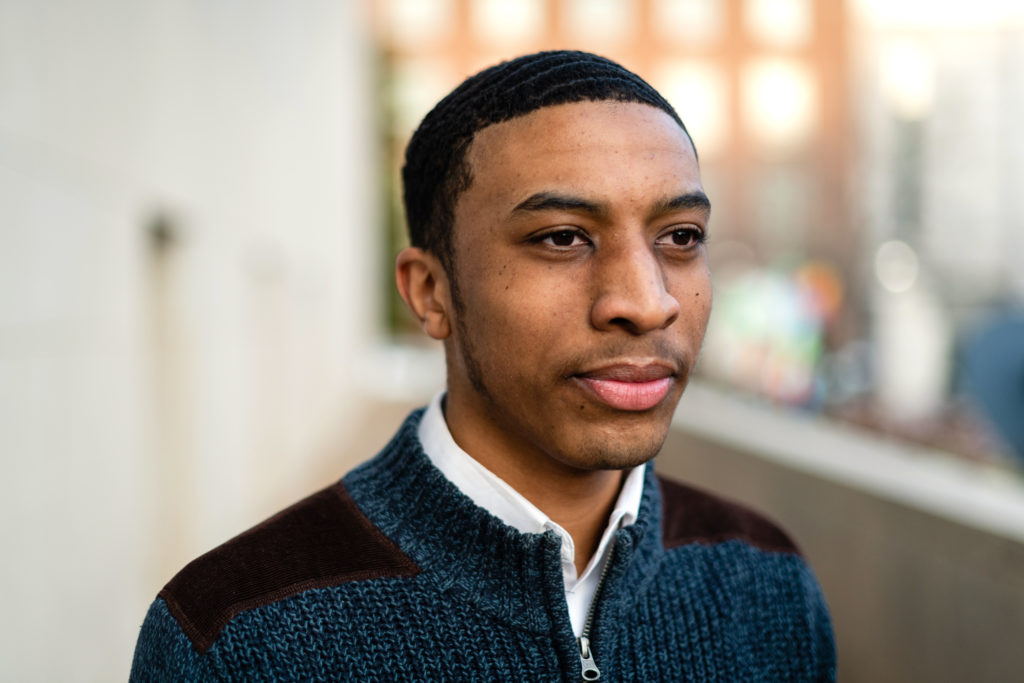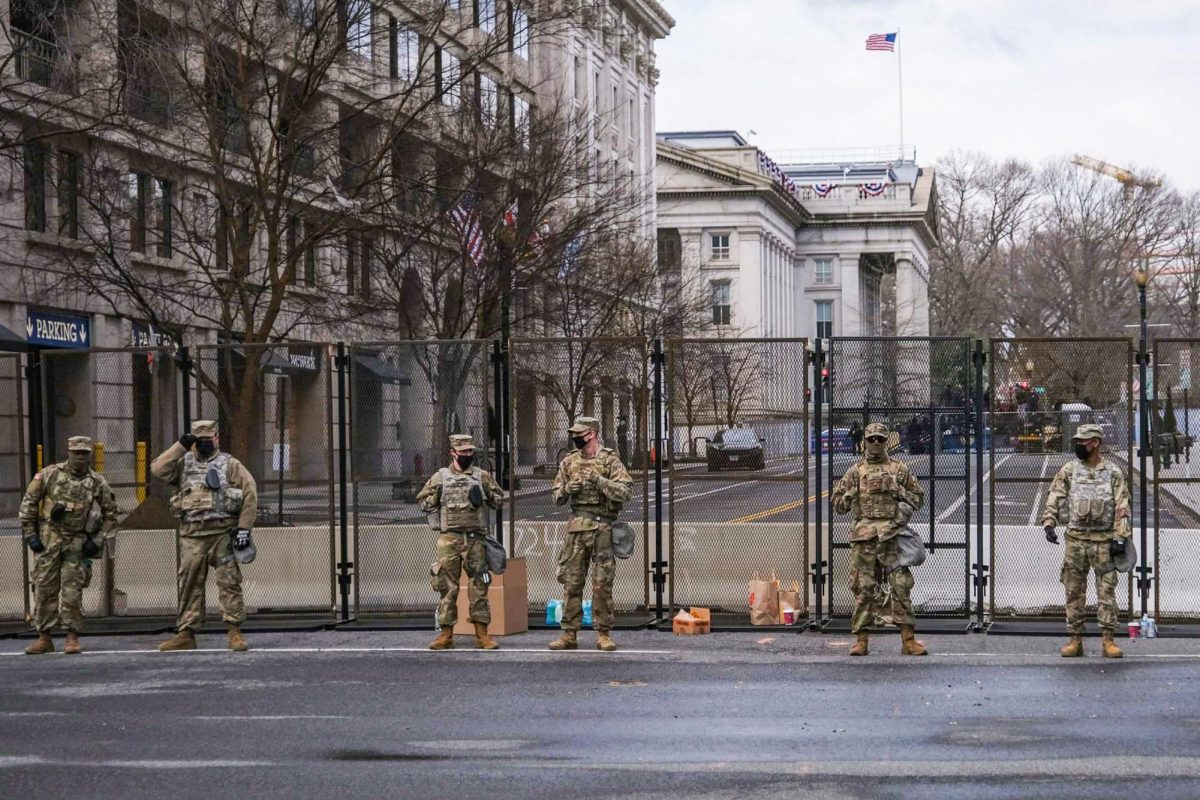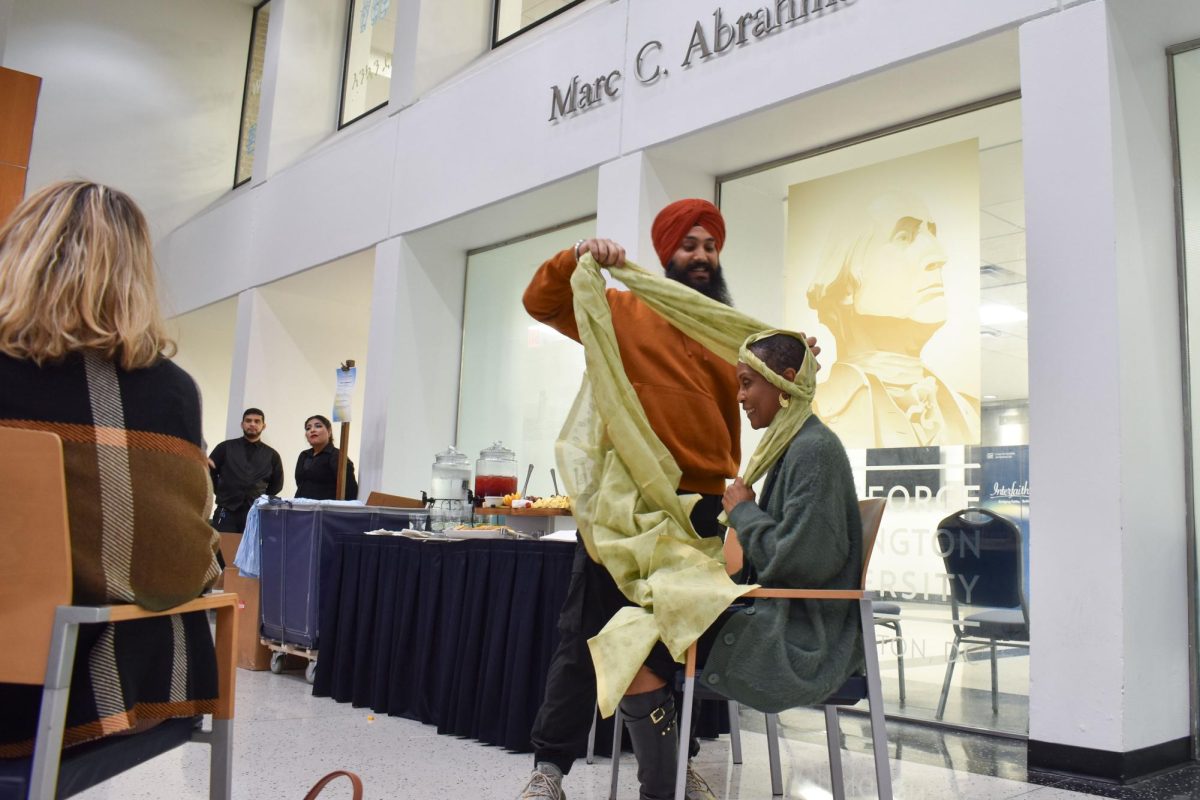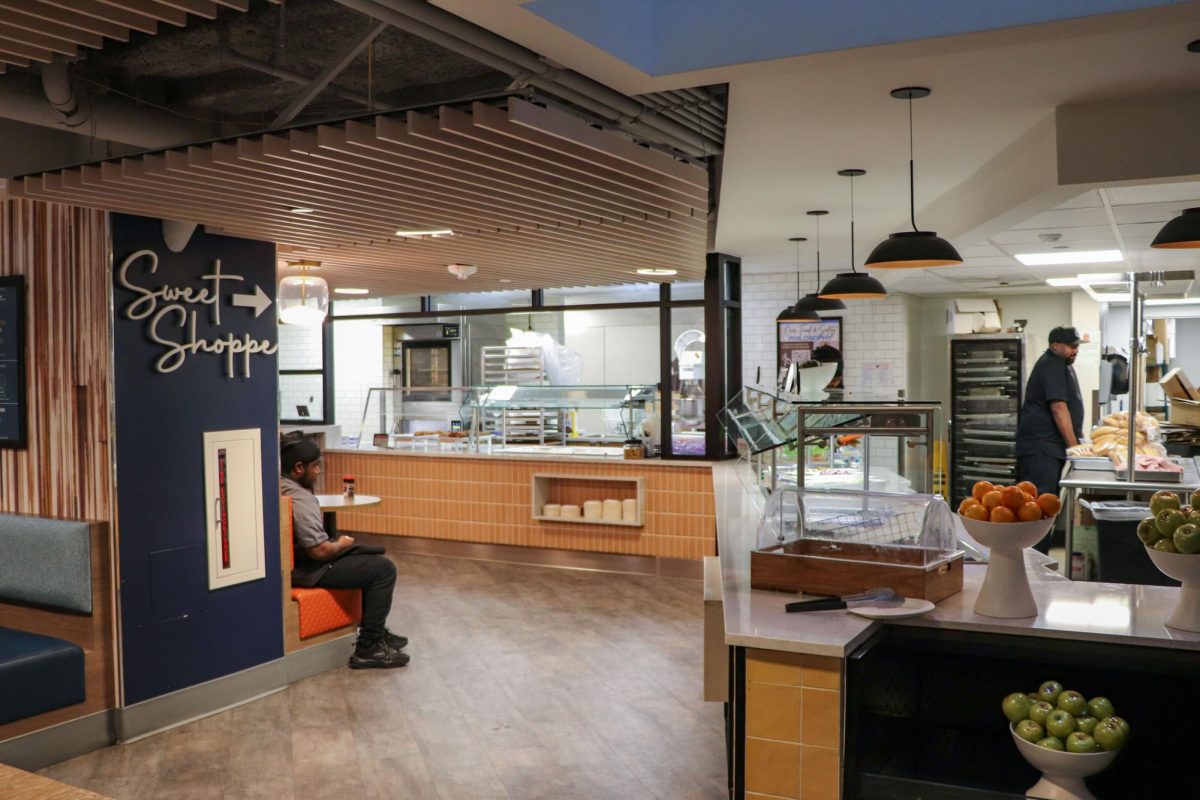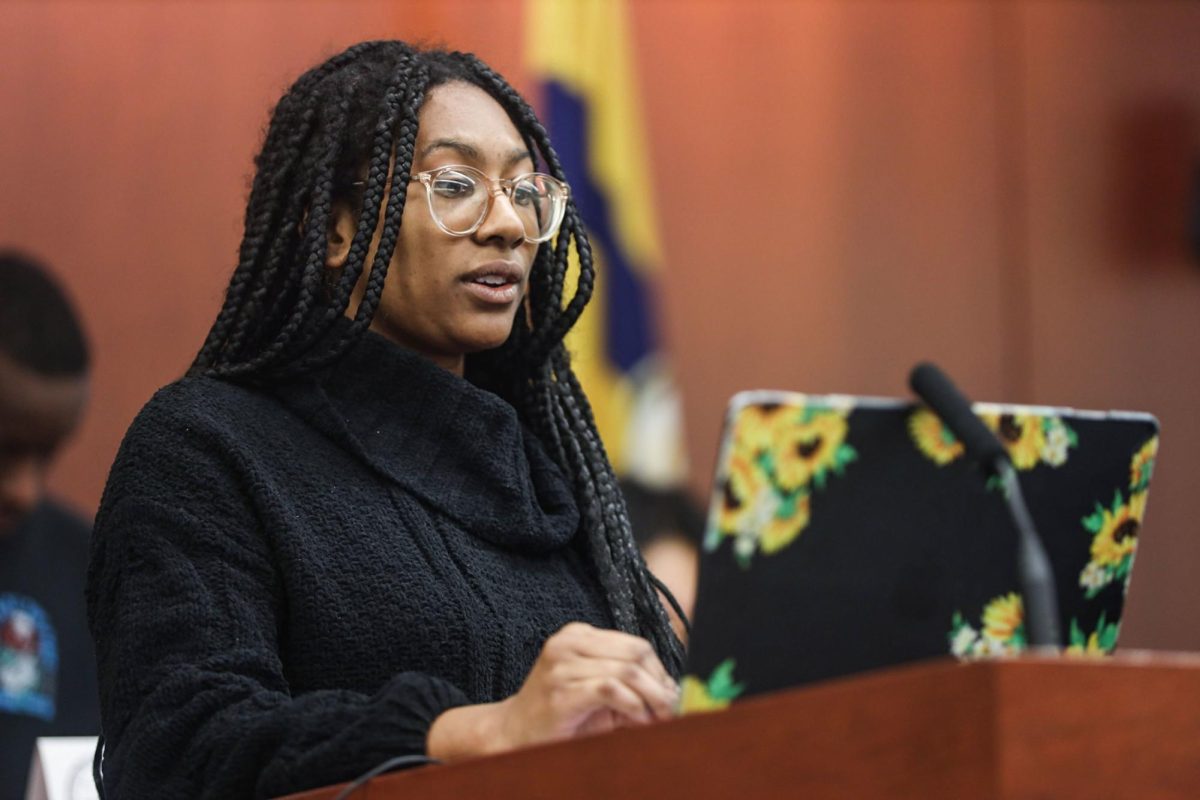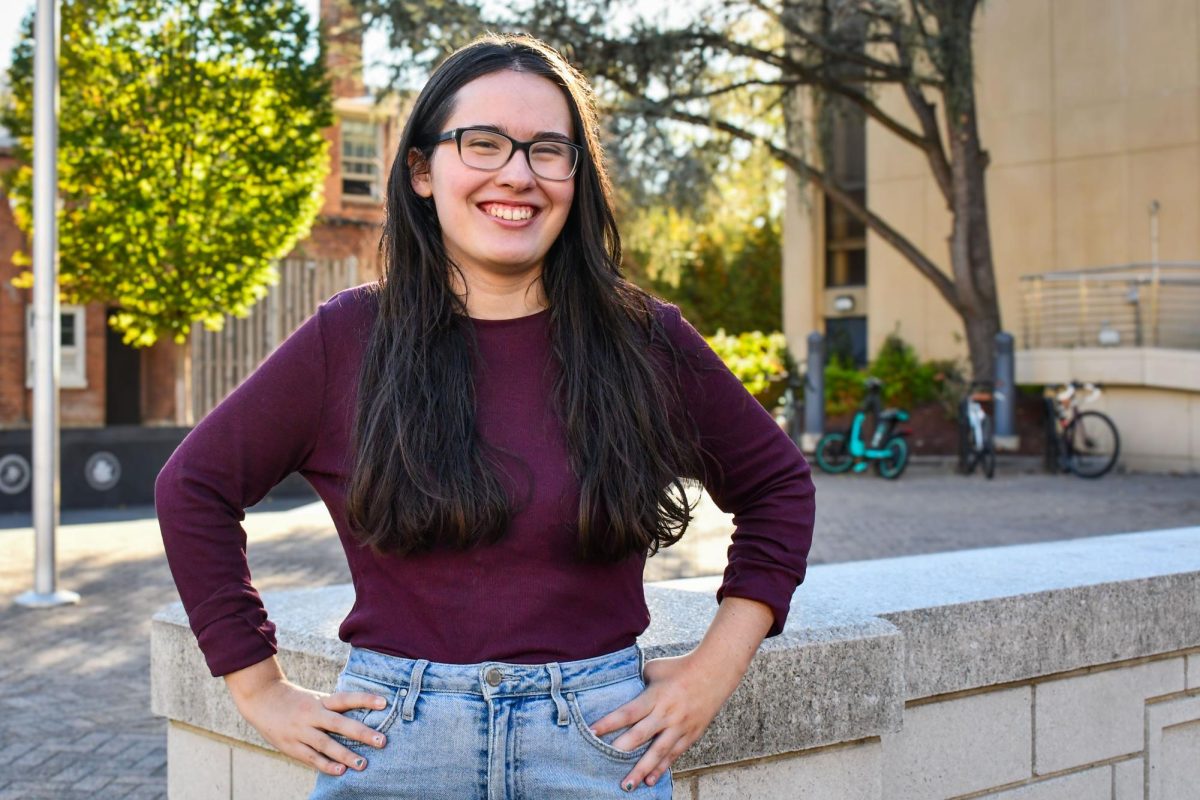A former Student Association Senate secretary and a co-chair of Black Heritage Celebration is looking to re-enter the organization as president.
Sophomore Bishop Walton said his time away from the SA this academic year has allowed him to intern with Sen. Sherrod Brown, D-Ohio, and commit to his role as a resident adviser. Walton said he will draw on his leadership experience to push for officials to implement safety training during New Student Orientation, revamp the roommate questionnaire for incoming students and extend Safe Ride’s distance off-campus.
“The time is now for change,” Walton said. “The time is now to do whatever it takes to get the student experience to the level that we want it to be, and we don’t need to look 10 years in advance – we need to look now.”
Walton is one of six people in the race for SA president so far, alongside SA Vice President for Public Affairs Drew Amstutz, Students for Indigenous and Native American Rights President Georgie Britcher and SA Sen. Howard Brookins, U-at-Large. SA Sen. George Glass, U-at-Large, and sophomore Christian Zidouemba also joined the race Monday.
He said that if elected, he would work to increase communication between RAs and Campus Living and Residential Education officials. He said RAs were not given the opportunity to provide feedback on officials’ recent decision to reduce housing cost model options from 17 to five pricing brackets.
Walton said he wants to appoint an SA vice president for housing to act as a “liaison” between RAs and administrators to ensure students are included in future decisions. Walton said adding the vice president position will encourage students to bring concerns, like housing prices, to the SA because students will have a direct point of contact.
“I’m an RA, and I know that there’s not a clear route or clear person in the Student Association where we can address our concerns to for this specific issue,” he said. “I see this role as addressing certain economic inequalities and voicing the concerns of the RA team.”
Walton said he has spoken with Colette Coleman, the associate dean of students, about boosting communication between administrators and resident advisers to better represent student voices in housing reform and selection processes. He said he wants to change roommate questionnaires to focus on student interests, instead of topics like sleeping habits, to allow students to find their own communities based on interest.
Walton said he also spoke with Coleman about setting aside multicultural student leader floors in residence halls, like dedicating certain floors to black and Latino students to help build “cohorts” for students.
If elected, he said he would work with the GW Police Department to implement safety training, like self-defense sessions during New Student Orientation because students are not typically educated on how to react in emergency events like break-ins. Walton said he would also advocate for Banner Strips, like ones used at Virginia Polytechnic Institute and State University, to be installed in classrooms displaying protocols for students to follow in emergency situations.
“The banner strips are literally in the classroom, and if anything would happen or any emergency then you would see something pop up on the screen and prompt you to act quickly,” Walton said.
He said he would advocate for a “two-factor authentication” system for tapping into residence halls, under which a student would tap their GWorld and a picture of the student would pop up to whoever is checking IDs. Officials expanded tap access to 15 residence halls last month to replace the keys some students previously used.
Walton said he intends to speak with Karen Zinn, the executive director of business and auxiliary services, in the coming weeks to discuss expanding the GW Safe Ride system. He said the service should pick students up from Constitution Avenue because students often spend time on the National Mall.
The current system transports students between 19th Street to 24th Street and Pennsylvania Avenue to E Street and Virginia Avenue, according to the University’s transportation website.
Walton said the transportation system could model Georgetown University’s shuttle system that busses students around the city to accommodate graduate and commuter students who have to travel longer distances than undergraduates.
He said he worked with former SA Executive Vice President Ojani Walthrust to add more African American food options and cheaper grocery stores, like Safeway, to GWorld to combat food insecurity. Walton said he and Walthrust hosted a pop-up food vendor shop with African American cuisine last year.
He said he intends to pick up the conversation about increasing African American vendor cuisine on GWorld with John Ralls, the director of communication for the facilities planning, construction and management office.
“We looked at market basket schools, we looked at how students felt about it and we even did have last year a pop-up shop, which was successful,” he said. “We brought in black food trucks in Potomac Square, and it was a very successful event, and it’s something that people want because the lines were huge.”


